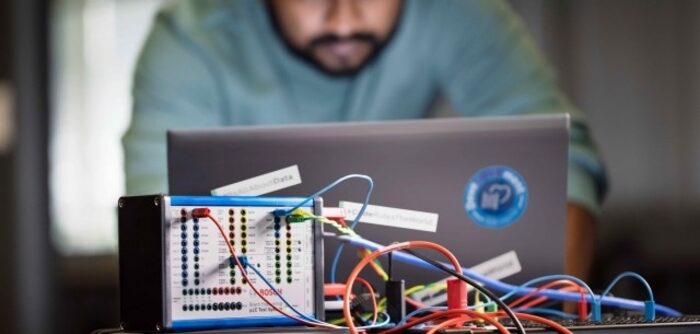Bosch says it is taking further strategic steps to establish itself in the realm of software-dominated mobility solutions. In the future, under the umbrella of its subsidiary ETAS, the company intends to develop and sell basic vehicle software, middleware, cloud services and development tools for universal application.
A total of 2,300 experts from different development areas of Bosch and ETAS are to be brought together under one roof in mid-2022. “Software development is a longstanding core competence at Bosch. Every year, we put more than 200 million control units running our own software into vehicles worldwide. With this new setup, we want to become the leading provider of application-independent vehicle software,” said Dr Stefan Hartung, chairman of the mobility solutions business sector at Robert Bosch GmbH.
Last year, Bosch established its Cross-Domain Computing Solutions division, a unit for application-specific vehicle software development with dedicated hardware for numerous vehicle areas such as driver assistance and infotainment. Now the company is bringing together its portfolio of application-independent software for vehicles and the cloud at ETAS. It is hoped that the resulting central platform will allow Bosch to develop automotive software more quickly and efficiently together with its partners.
“Our universal software foundation is essential for the digitalization of modern, software-defined vehicles,” Hartung added. Bosch will combine its universal software platform with expertise in the development of innovative software functions. “We are creating a USP and a significant competitive advantage for Bosch,” noted Dr Markus Heyn, a member of the Bosch board of management. In the future, ETAS will offer this universal platform and the accompanying development environment to automotive manufacturers and other suppliers.
Bosch notes that up to now, the rule has been that vehicles are delivered as finished products. However, in the future, a car’s software will be continuously improved and expanded throughout its service life. This will give drivers a customized digital driving experience and form the basis of new business models for manufacturers. This development is just beginning.
It is predicted that the market for automotive software will be worth billions in the next few years. Bosch expects double-digit annual growth until 2030. The organizational realignment it is planning for its application-independent automotive software units bears witness to this transformation.
“In the future development of vehicle operating systems, we want to position ourselves even better in the global market,” said Heyn. “With this move, we are providing existing and new customers with an integrated, horizontal, cross-domain platform that will allow them to achieve the aim of software-defined vehicles.”
The partnership between Bosch and Microsoft that began in February will continue in the new organization. The two companies aim to develop a comprehensive software platform for connectivity between cars and the cloud, making it quicker and easier to develop vehicle software throughout a car’s lifetime, as well as to download it to the control units and vehicle computers via the cloud.


